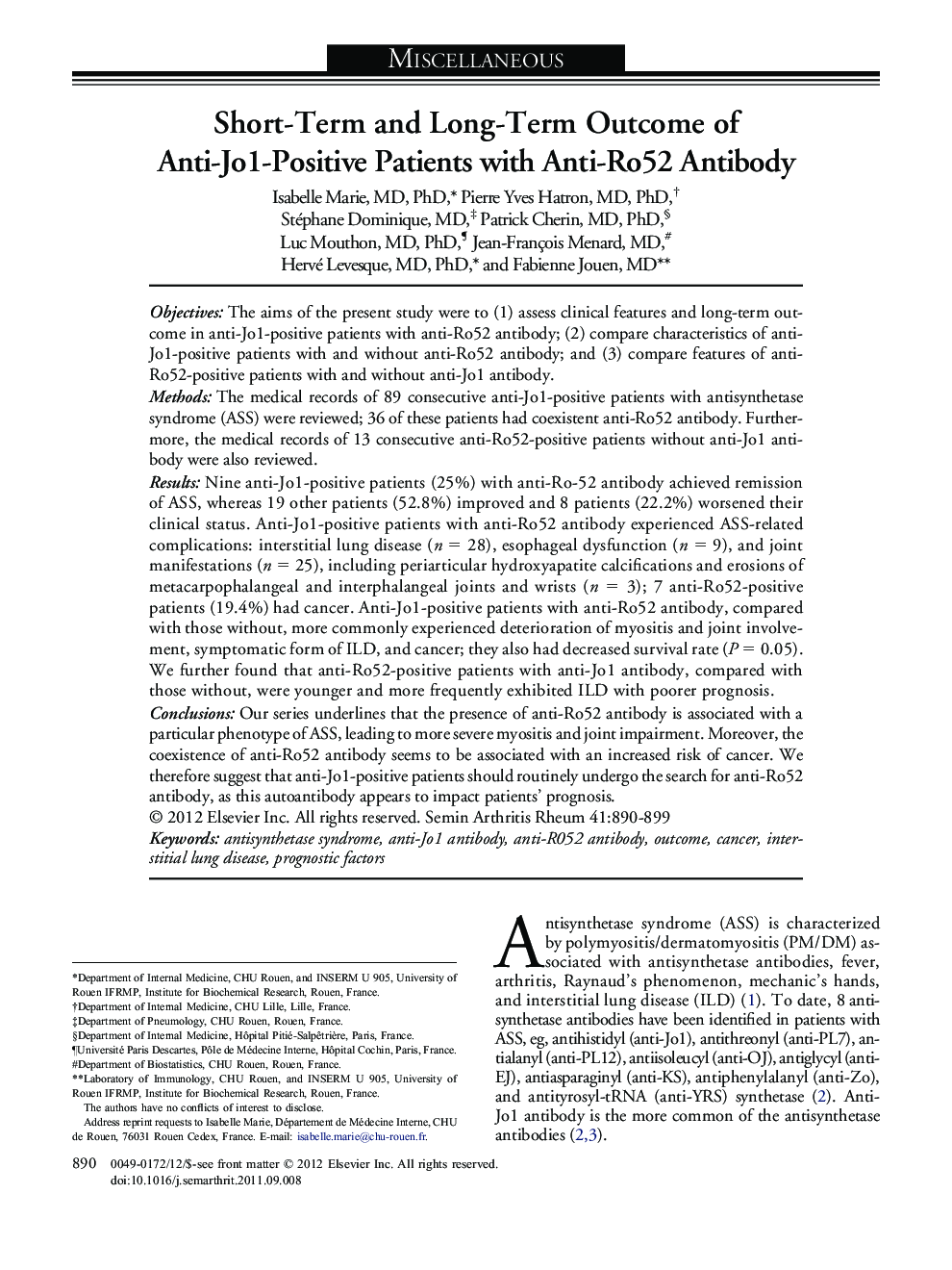| Article ID | Journal | Published Year | Pages | File Type |
|---|---|---|---|---|
| 2771466 | Seminars in Arthritis and Rheumatism | 2012 | 10 Pages |
ObjectivesThe aims of the present study were to (1) assess clinical features and long-term outcome in anti-Jo1-positive patients with anti-Ro52 antibody; (2) compare characteristics of anti-Jo1-positive patients with and without anti-Ro52 antibody; and (3) compare features of anti-Ro52-positive patients with and without anti-Jo1 antibody.MethodsThe medical records of 89 consecutive anti-Jo1-positive patients with antisynthetase syndrome (ASS) were reviewed; 36 of these patients had coexistent anti-Ro52 antibody. Furthermore, the medical records of 13 consecutive anti-Ro52-positive patients without anti-Jo1 antibody were also reviewed.ResultsNine anti-Jo1-positive patients (25%) with anti-Ro-52 antibody achieved remission of ASS, whereas 19 other patients (52.8%) improved and 8 patients (22.2%) worsened their clinical status. Anti-Jo1-positive patients with anti-Ro52 antibody experienced ASS-related complications: interstitial lung disease (n = 28), esophageal dysfunction (n = 9), and joint manifestations (n = 25), including periarticular hydroxyapatite calcifications and erosions of metacarpophalangeal and interphalangeal joints and wrists (n = 3); 7 anti-Ro52-positive patients (19.4%) had cancer. Anti-Jo1-positive patients with anti-Ro52 antibody, compared with those without, more commonly experienced deterioration of myositis and joint involvement, symptomatic form of ILD, and cancer; they also had decreased survival rate (P = 0.05). We further found that anti-Ro52-positive patients with anti-Jo1 antibody, compared with those without, were younger and more frequently exhibited ILD with poorer prognosis.ConclusionsOur series underlines that the presence of anti-Ro52 antibody is associated with a particular phenotype of ASS, leading to more severe myositis and joint impairment. Moreover, the coexistence of anti-Ro52 antibody seems to be associated with an increased risk of cancer. We therefore suggest that anti-Jo1-positive patients should routinely undergo the search for anti-Ro52 antibody, as this autoantibody appears to impact patients' prognosis.
